Building on its legacy of excellence and innovation in patient care, Mount Sinai’s Comprehensive Kidney Cancer Center continues to advance research and treatments by bringing together Mount Sinai’s extensive expertise in radiology, immunology, genomics, and clinical care to develop new diagnostic tools, pioneer more minimally invasive approaches to surgery, and conduct research that results in new therapeutic targets and treatments.
“Despite the prevalence of the disease, new treatments and research in kidney cancer have lagged behind other cancers in attention and funding,” says the center’s founder and director Ketan Badani, MD, Professor of Urology at the Icahn School of Medicine at Mount Sinai and Vice Chair of Urology and Robotic Operations for the Mount Sinai Health System. “Through focused multidisciplinary efforts, we are poised to make progress in addressing longstanding challenges in innovative ways.”
For example, one area where Dr. Badani and his team are making progress is diagnostic tools. The team has been exploring the potential of multiparametric renal MRI as a noninvasive modality of tumor assessment by correlating the radiomic data it produces with genomic and immunological studies of patient blood, urine, and tissue samples collected post-surgery to identify predictive patterns.
“When patients are diagnosed with a kidney tumor, we often do not know if it is cancerous, but we tend to treat it as such because we know from experience there is a 70 percent to 80 percent chance it is,” says Dr. Badani, who also directs the Center’s Reconstructive Surgery Program. “We are creating a model where we can use MRI as a biomarker to predict what kind of tumor the patient has without having to perform a biopsy.”
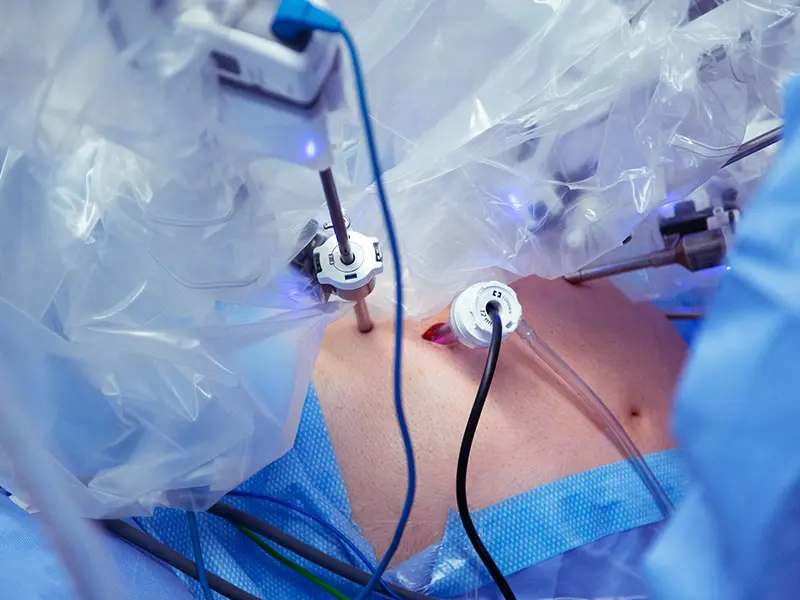
Depiction of port sites and robotic arms.
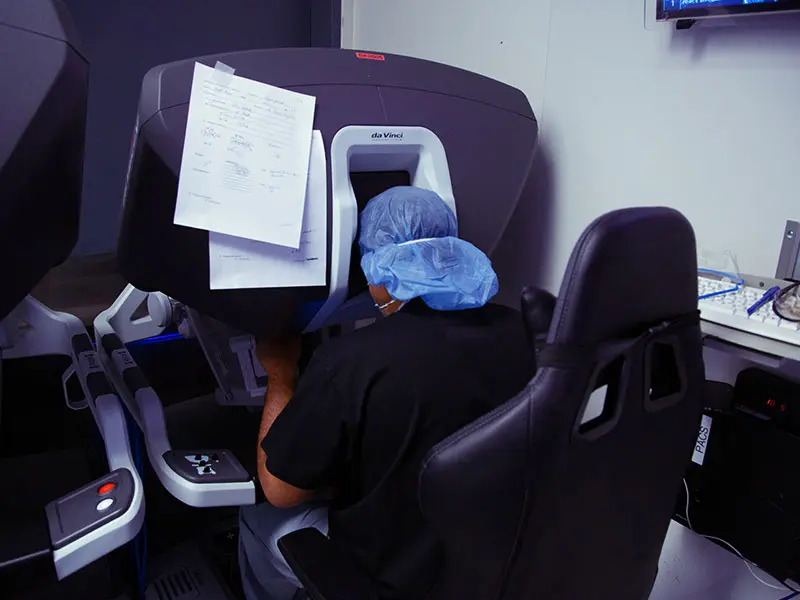
Ketan Badani, MD, operating at the robotic console.
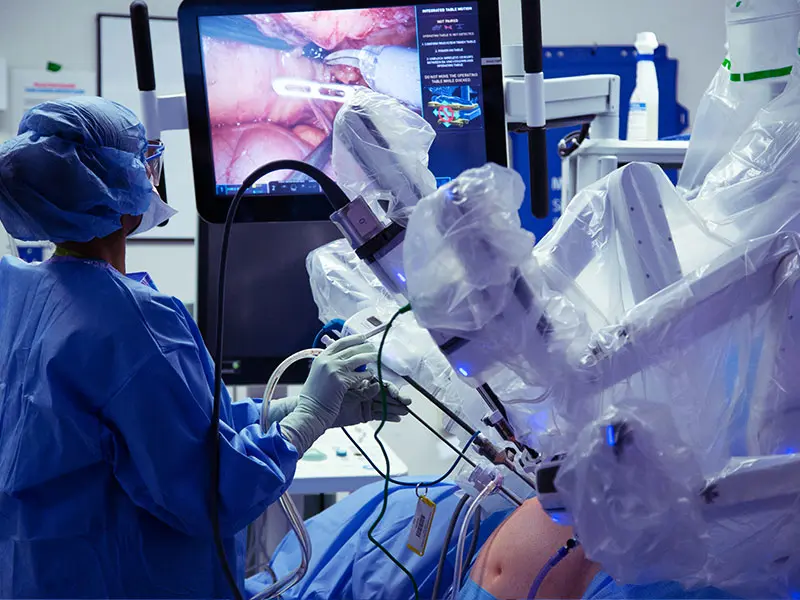
Setting up the robotic system.
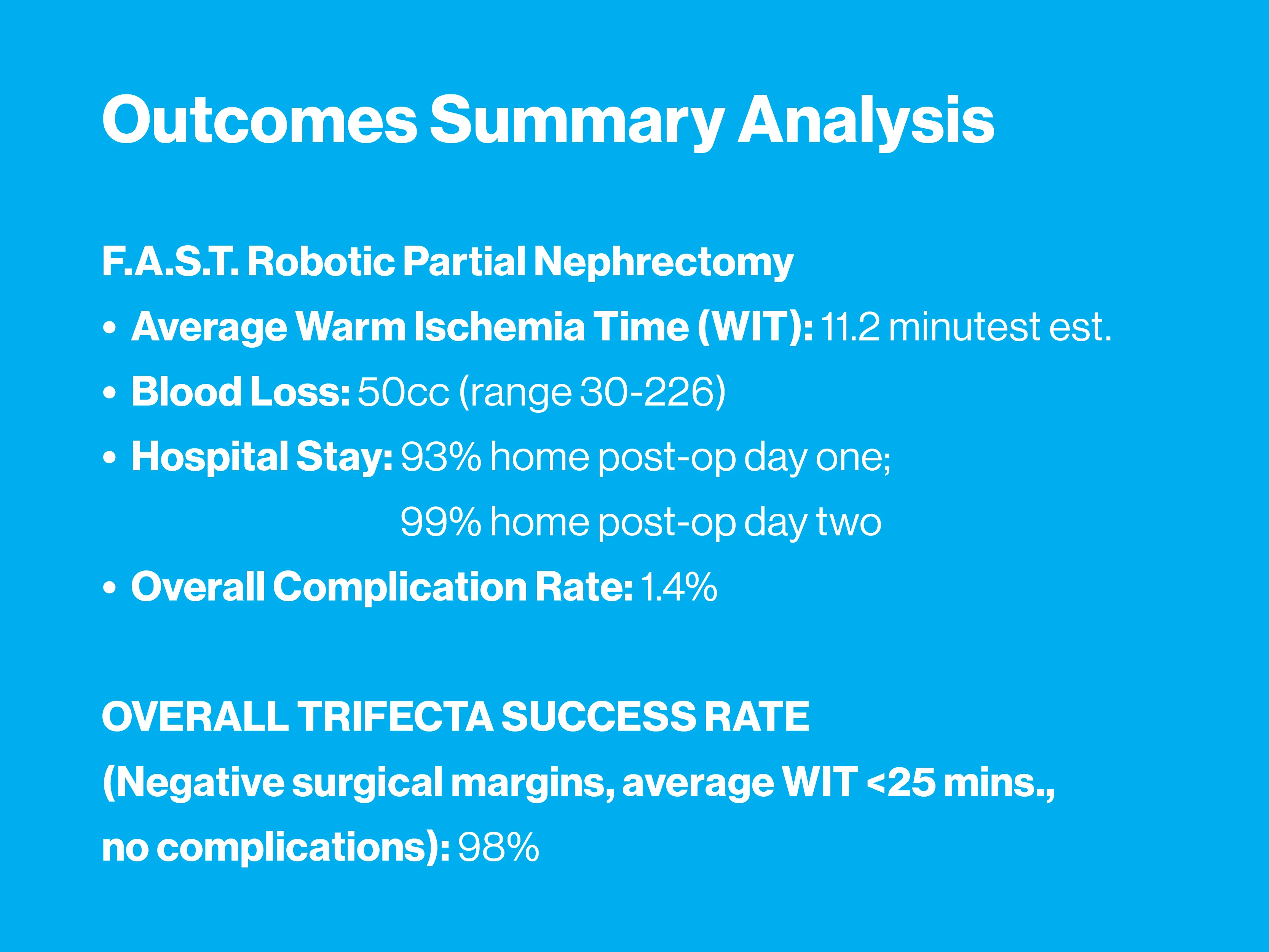
Outcomes Summary Analysis
A widely renowned pioneer of robot-assisted kidney cancer surgery, Dr. Badani continues to refine his groundbreaking F.A.S.T. (First Assistant Sparing Technique) approach to minimally invasive robotic surgery for partial nephrectomy through the Center, reducing kidney ischemia time to as little as nine minutes on average, and assessing the potential of using three-dimensional models to plan surgery, reduce kidney trauma, and assess how much tissue can be preserved. He has achieved an 85 percent rate of partial over total nephrectomy among all patients regardless of tumor complexity compared to the national average of 40 percent.
“Because F.A.S.T. is a reproducible, predictable surgical procedure, it effectively eliminates the need for different approaches for patients with low, intermediate, or high-complexity tumors,” says Dr. Badani. As a result, the team is able to standardize technique, kidney functional outcome, and the length of post-operative hospital stay because of this innovative work.
Dr. Badani has long promoted this technique to colleagues worldwide and had envisioned the creation of the first observation site for robotic surgery at the Center to further those efforts. Those plans were delayed by the COVID-19 pandemic, so he developed an innovative workaround: a telepresence mentoring operating room that offers participants an all-encompassing virtual view of the procedure.
“You can see the surgical view, the assistants, the nurses, and anesthesiologists in the same way you would if you were on-site,” Dr. Badani says. “This is a unique approach that has not been done to this extent before, and we believe it could be adapted for a wide range of specialties.”
The Center also represents a step forward in research and clinical trial activity, enabling more collaborations with The Tisch Cancer Institute at Mount Sinai, a National Cancer Institute (NCI)-designated center. Dr. Badani has enrolled more than 500 patients in a new biobank that is providing vital data to explore therapeutic targets.
“We have already made some noteworthy observations, including the identification of potential biomarkers for more aggressive types of kidney cancer in urine samples,” Dr. Badani says. “That is significant because this could provide an alternative to identifying aggressive cancers other than through biopsies,” Dr. Badani says. “We can also use biobank samples for genomic and immunologic studies that will not only enable us to make more informed therapeutic recommendations to prevent recurrence of cancer among our patients but also advise them on their hereditary risks so they can better protect their families.”
That information is supplemented by outcome data collected from 6,000 patients who have undergone robotic surgery at 10 major kidney centers nationwide. Dr. Badani believes it is the largest database of its kind in the world and could lead to the development of national standards and benchmarks for surgical treatment.
“There are many positive impacts that can come out of having access to all of this data,” Dr. Badani says. “Given our collective knowledge, resources, and innovations in this field, I believe we have positioned ourselves to be leaders in the field of kidney cancer research, diagnosis, and care.”
Featured
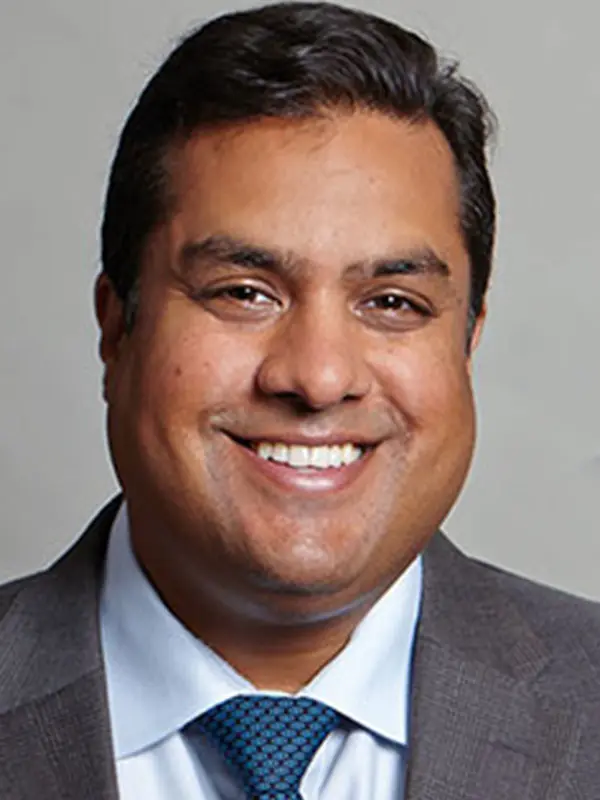
Ketan Badani, MD
Professor of Urology, Icahn School of Medicine at Mount Sinai, and Vice Chair of Urology and Robotic Operations, Mount Sinai Health System